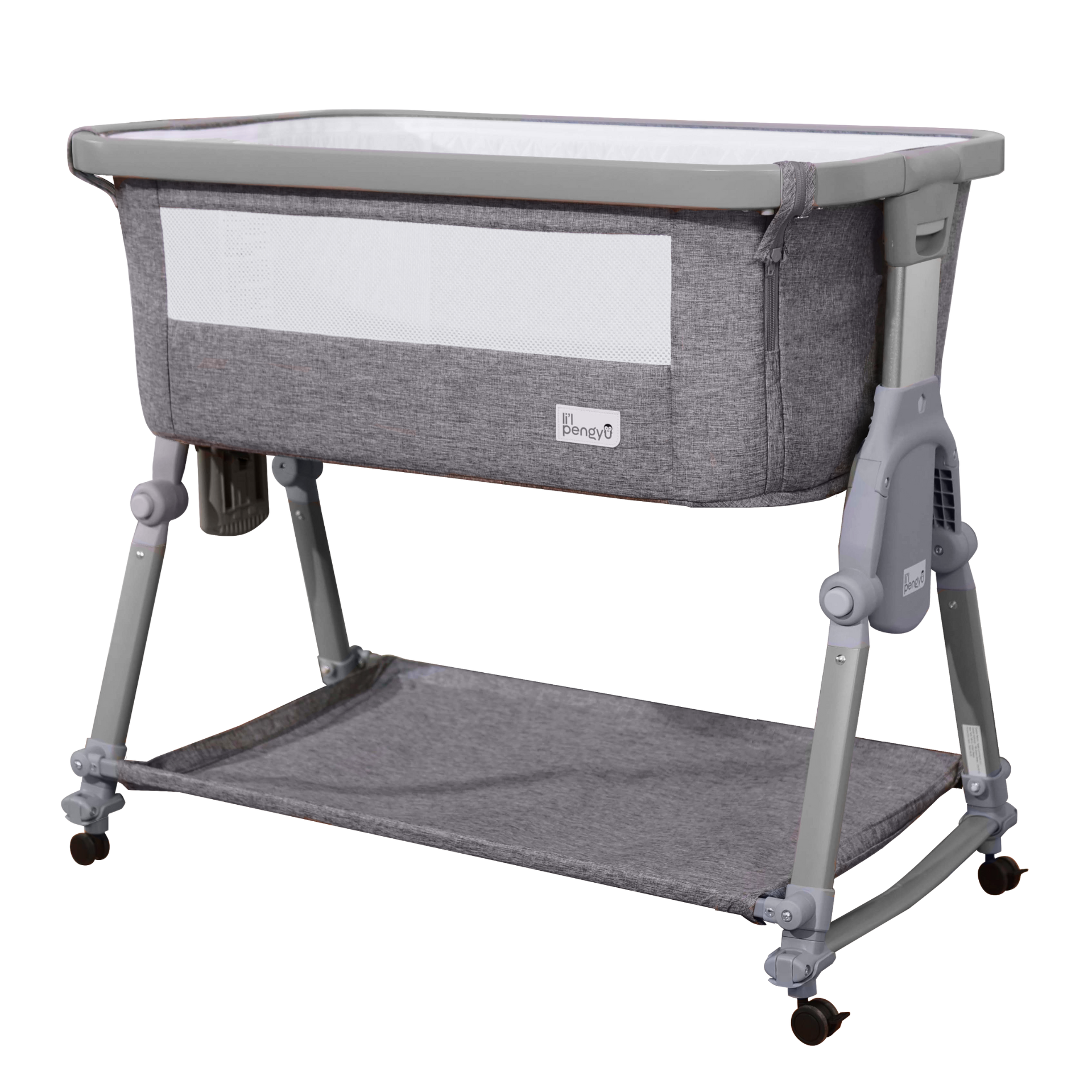How the right music can help soothe your baby to sleep and support infant brain development

“Sleeping like a baby” isn’t always a good thing. There are times when babies don’t sleep much at all, leaving exhausted parents worldwide looking for an answer.
Babies often have unpredictable sleep patterns and may find it challenging to sleep for all sorts of reasons, including hunger, exhaustion, sickness, scheduling issues, and transitioning to sleeping alone.
Most newborns wake up every two to three hours to eat. It can take up to 11 weeks to develop a lasting 24-hour sleep cycle. By the three-month milestone, many babies have a routine but still may not be sleeping through the night.
Many babies can sleep through the night by six months old. Be grateful if you have a good sleeper. Many parents have problems with their children sleeping into the toddler years.
Fortunately, the solution may be as simple as a song, literally. Music, specifically classical, has proven benefits for a baby’s sleep cycle.
This article discusses how music impacts babies’ sleep, a few of the best lullabies to help your baby drift off to dreamland, and some surprising sounds that might help when nothing else does.
How music impacts sleep
Music has been used to lull people of all ages to sleep since rhythm and tempo were discovered. Science says it can reduce stress, anxiety, and physical pain. It’s good for your health, too. It can help lower blood pressure and soothe nerves.
Another big reason soft, soothing music helps induce sleep is that it triggers the body to release two sleep-friendly hormones, serotonin and oxytocin, while suppressing the anti-sleep hormone, cortisol.
While classical music typically affords the best sleep benefits, some people prefer lyrical songs or strong rhythms. Everyone has a preference but the tempo matters the most when it comes to sleep induction.
The tempo of the music is the number of beats per minute (BMP), and it profoundly impacts the listener’s heart rate and mood. Fast-paced, upbeat music with a speedy tempo is perfect for working out but it won’t help a baby get much sleep.
The typical resting heart rate is approximately 60 to 100 BPM, so the perfect tempo music for sleeping is 60 to 80 BPM.
Great lullabies for babies
Babies and little kids have short attention spans, so brief, melodic, orchestral works make fantastic lullabies. Here are some perfect examples:
-Quasi una fantasia, Op. 27, No. 2 by Ludwig van Beethoven
Otherwise known as Moonlight Sonata, this song is one of Beethoven’s most beloved sonatas. He wrote it in 1801 when he was in his early 30s. A poet and critic referred to it as the “Moonlight Sonata” after Beethoven’s death.
It is unusual in that it doesn’t follow the typical movement arrangement of the period – fast-slow-fast-fast. Instead, it holds an end-weighted course, with the rapid music held off until the third movement when the baby is safely asleep.
-Swan Lake Op.20 by Pyotr Ilyich Tchaikovsky
This ballet was not well received in 1877, but today it’s one of the most beloved. Tchaikovsky was commissioned to compose it but was so hurried to move on to the next project that he finished it in a year.
Swan Lake is scored for the standard late 19th-century large orchestra with strings, brass, percussion, and woodwinds. It tells the story of Princess Odette, who is transformed into a white swan.
-Mozart’s Symphony No. 40
One of the most well-known pieces of classical music, Symphony No. 40 by Mozart, is an ideal option for baby’s bedtime music. It is in G minor and has four movements: Allegro molto, Andante, Menuetto, and Allegro assai, in a relaxing, melodic tempo.
Mozart’s music, in particular, impacts the left and right brain, which boosts brain power, according to The Mozart Effect research by Dr. Alfred A. Tomatis. It may be a good choice for infant brain development.
Unexpectedly helpful sounds
Music isn’t the only sound that soothes babies to sleep. Other sounds sometimes work to calm cranky and crying babies into sleep.
-White noise
White noise is like the sound of a mother’s womb. Babies find it highly comforting. It’s beneficial during the lighter phases of sleep when they can be easily startled by outside noise.
-Animal sounds
Babies love the sounds of animals, like dogs playing, cats purring, and horses neighing. Children love animals, and they form an interest at an early age. Soft farm sounds can soothe an irritated baby and interest a bored toddler.
-Fans
The sound of a fan whirring nearby is soothing to adults and babies. It blocks other noises and works to relax and ease the mind to sleep.
Exposing your baby to a variety of music will help you find the songs that soothe and relax them for bedtime. Any piece they like imparts health benefits for you both.
Listening to classical music can help your baby fall asleep quickly but it also imparts wellness benefits to both of you.
Your baby’s sleep is as important to us as it is to you
Watching your precious little one struggle with sleep can be heartbreaking; not to mention the toll it takes on your body and mind. Li’l Pengyu cares about making better products for your baby. We know that caring for a new baby can be overwhelming, so we aim to help you and your baby rest easy. Our innovative, thoughtful, high-quality baby and toddler products for sleep and play meet the needs of parents and babies alike.
For more information about our bassinets for relaxing and safe sleep, take a look at everything we have to offer.






